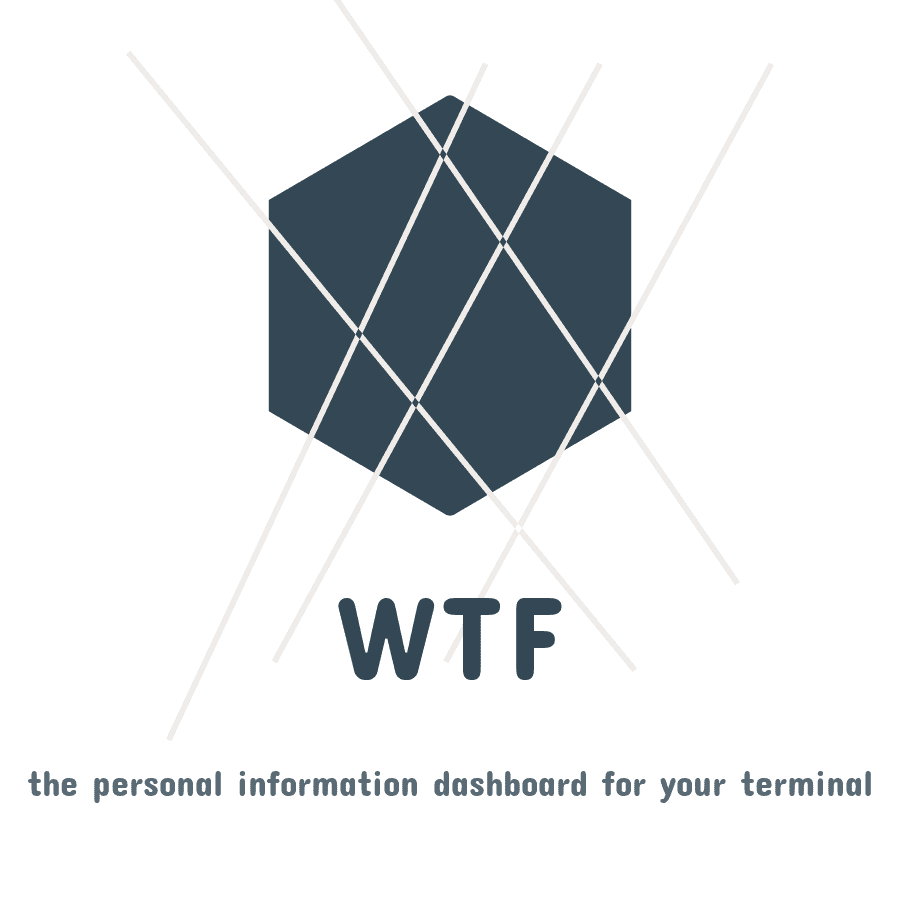WTF (aka 'wtfutil') is the personal information dashboard for your terminal, providing at-a-glance access to your very important but infrequently-needed stats and data.
Used by thousands of developers and tech people around the world, WTF is free and open-source. To support the continued use and development of WTF, please consider sponsoring WTF via GitHub Sponsors.
Awesome! See here for how you can change the exit message, the message WTF shows when quitting, to something special just for you.
- Installation
- Communication
- Documentation
- Modules
- Getting Bugs Fixed or Features Added
- Contributing to the Source Code
- Contributing to the Documentation
- Contributors
- Acknowledgements
Other installs can be found at wtfutil's website
You can run wtf inside a docker container:
# download or create the Dockerfile
curl -o Dockerfile https://raw.githubusercontent.com/wtfutil/wtf/master/Dockerfile
# build the docker container
docker build -t wtfutil .
# or for a particular tag or branch
docker build --build-arg=version=v0.25.0 -t wtfutil .
# run the container
docker run -it wtfutil
# run container with a local config file
docker run -it -v path/to/config.yml:/config/config.yml wtfutil --config=/config/config.ymlSee https://wtfutil.com for the definitive documentation. Here's some short-cuts:
Modules are the chunks of functionality that make WTF useful. Modules are added and configured by including their configuration values in your config.yml file. The documentation for each module describes how to configure them.
Some interesting modules you might consider adding to get you started:



